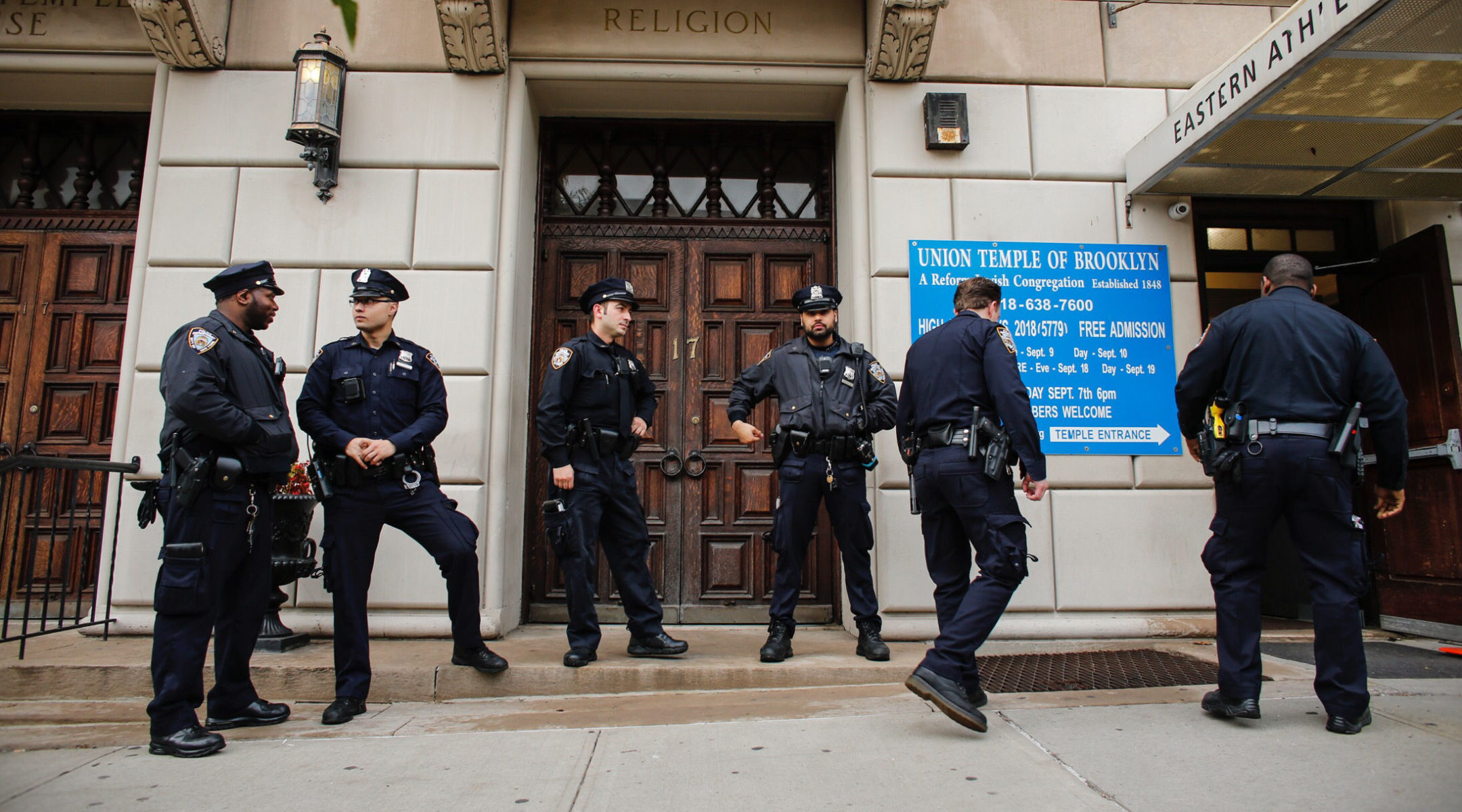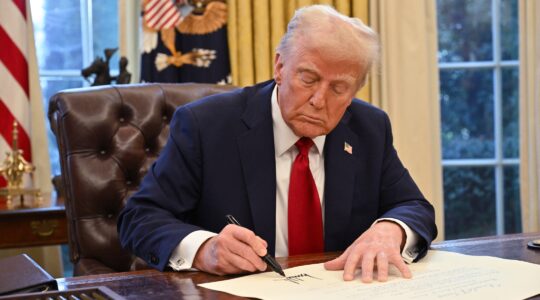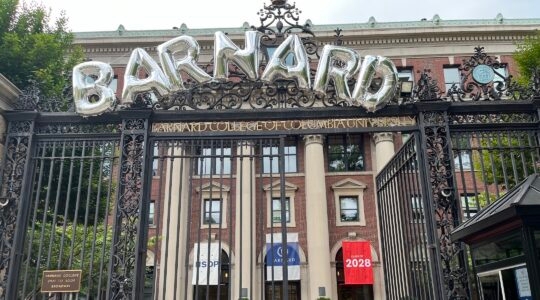(JTA) — On Thursday, the FBI had a message for Jewish institutions across the country: Prepare for the possibility of violence on election day.
That was the main takeaway from a webinar hosted Thursday afternoon by the Secure Community Network, which coordinates security for Jewish institutions across the country.
Current and former federal officials told the Jewish leaders in attendance that, as of now, there are no known threats to Jewish institutions on Election Day. But Jews should still prepare for the possibility of violence on Nov. 3 or afterward.
“We have not identified any specific threats relative to domestic violent extremists or international terrorist organizations,” said Calvin Shivers, assistant director of the FBI’s Criminal Investigative Division. But he added, “The nation remains poised for potential volatility, in regard to not only the election but I think just a lot of things that are going on in the country.”
Shivers said that in addition to its usual election monitoring activities, the FBI is establishing a national command post specifically to address potential civil unrest.
The webinar was hosted specifically for the hundreds of Jewish institutions — like synagogues, schools, or community centers — that either serve as polling places or are located near them. Less than three weeks from election day, federal and state officials have been warning of a rising tide of extremism that could crest into a wave of violence, especially if there’s an ambiguous result or if the preferred candidate of right-wing extremist groups, President Donald Trump, appears to be losing.
Over the past several years, and in particular since the shooting in Pittsburgh, synagogues across the country have taken steps to increase their security through armed guards, cameras or other measures. Synagogues were particularly vigilant when (during non-pandemic times) their buildings would be crowded for the most important services of the year.
Brad Orsini, who served as the Pittsburgh Jewish community’s director of security during and after the 2018 synagogue shooting there, said that in terms of the potential threat, Jewish institutions should view Nov. 3 with the same degree of seriousness as Rosh Hashanah and Yom Kippur.
“Treat this election season like the High Holidays,” said Orsini, who now serves as the Secure Community Network’s senior national security advisor. “Although we have no credible threats, we know the temperature of the country right now. We need to prepare as if something bad could occur.”
John Cohen, the former counterterrorism coordinator for the Department of Homeland Security, said the current environment is one in which extremists may “seek to disrupt the election or use the election season as an opportunity to incite violence.”
“Some who are running for office today have incorporated into their political playbook a spread of conspiracy theories and divisive narratives, from their perspective to aid their political opportunity, but can also have the effect of inspiring destructive or violent behavior,” he said.
Cohen described a “multi-year rise in violent extremist violence,” that includes an increase in hate crimes and other criminal activity by white supremacists and anti-government extremists.
“I can’t think of a time since 9-11 where I have had more concern about security issues associated with polling sites or the election generally,” he said. “There’s a segment of America who view this election as ‘rigged’ or at risk of being stolen, prompting calls in conspiracy and extremist circles for poll watchers and even violence both during the election and after the voting has concluded.”
Orsini said Jewish institutions need to take concrete actions before Election Day to prepare for the possibility of unrest if they’re near polling stations.
“If you’re not a polling station and some type of civil unrest occurs, we need to be prepared to close our building, shutter our facility if something bad happens,” he said. “We want to have a plan, that if we have to quickly shut down, that we do so.”
JTA has documented Jewish history in real-time for over a century. Keep our journalism strong by joining us in supporting independent, award-winning reporting.






